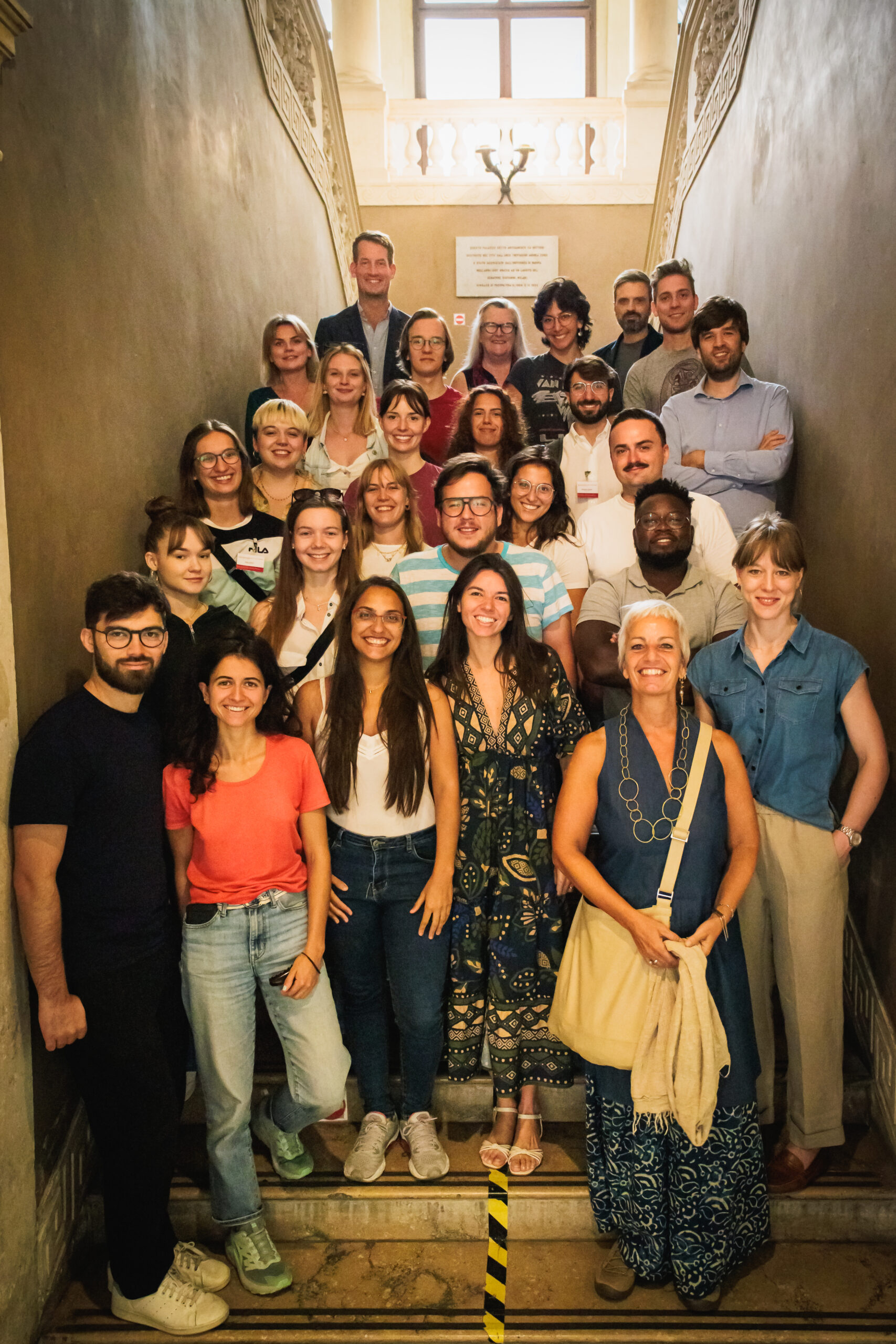More than 20 students and ten instructors from universities across Europe spent a week in beautiful Padova for the final phase and highlight of their Erasmus+ “blended-intensive programme” (BIP). The in-person component of the BIP “Digital Constitutionalism and Platform Governance” took place in late September at the Department of Political Science, Law and International Studies (SPGI) of the University of Padova. At the University of Bremen, the BIP is co-organized by ZeMKI PGMT Lab member Dr. Dennis Redeker and Adio-Adet Dinika (BIGSSS).
Students of the BA Communication and Media Studies and the two MA programs at the University of Bremen, participated in the transnational blended learning experience funded by the Erasmus+ program. Main organizers of the BIP were Prof. Claudia Padovani and Dr. Andrea Petracchin at the University of Padova. In addition to students from Bremen and Padova itself, students from Dublin City University taught by Prof. Edoardo Celeste also participated in this year’s BIP. Additional partners without students in the mobility include the University of Salerno (Prof. Mauro Santaniello), Maastricht University (Prof. Mariëlle Wijermars), the University of Groningen (Prof. Marianne Franklin), Complutense University of Madrid (Dr. Tamara Robles), WZB (Dr. Clara Iglesias Keller) and the University of Klagenfurt (Dr. Kristina Rozgony). Between May and June 2023, students and instructors got to know each other and the topics of the BIP, before the start of the five-day intensive phase. In between, students worked together in inter-university groups to prepare opening presentations on a number of so-called digital bills of rights documents.
The contents of the semester-long BIP were comprehensive. Designed to explore the intersections between digital constitutionalism and platform governance, the program aimed at providing students with the theoretical, analytical and methodological tools to make sense of the values and principles that (should) guide regulatory arrangements for the digital age, while critically addressing actors’ interactions and power positions as well as power limitations in the same context. The general theme was articulated in two sub-themes – values and fundamental rights and digital and green transition – around which a variety of educational activities were organized. In Padova, presentations further investigated the UN process for a Global Digital Compact, the role of pan-African movements in the fight for human rights online, and the possibility for a global standard for platform content governance anchored in human rights.
The BIP also provided participants transversal skills, including public speaking skills, group work experience, intercultural competences and the know-how needed for effective interventions in digital and platform governance. Dr. Petracchin and Dr. Rozgony provided students with instructions and advice on how to write effective policy briefs, a method of communicating complex questions for a policy-oriented audience. Student groups then produced policy briefs focused on the implementation of principle-based documents in various national and sub-national settings, and presented these to cap off the intensive week of (fun and) learning.
In order to facilitate funding and logistics, the BIP relied on helping hands in the universities’ administrations (particularly in Padova this year). From the Bremen side, Barbara Hasenmüller (International Office) and her colleagues have been instrumental to enabling the mobility of 13 students from Bremen. Dr. Sinner (ZeMKI) and Prof. Haunss (SOCIUM) supported the academic recognition of this new form of short-term exchange.
The BIP is the latest project of the interdisciplinary Digital Constitutionalism Network (DCN), integrated into the fourth iteration of the DCN Teaching Partnership, in which additional universities and instructors participate, usually through virtual joint sessions. The 2024 iteration of the BIP is set to take place at ZeMKI in Bremen.
